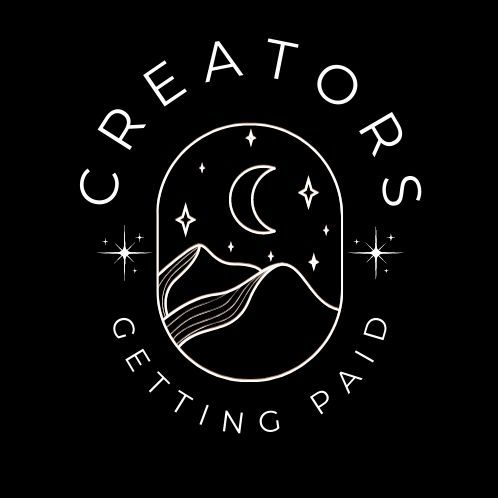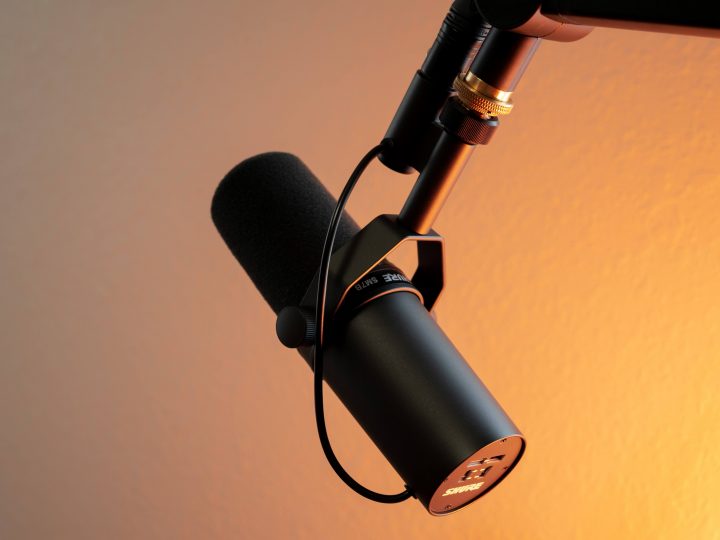You’ve decided to start a podcast or have been podcasting for awhile. Things seem to be going well, but you’re wondering if there are a few actions that you could take to improve your show. Every time you ask a question in one of the major social media groups, you get snarky answers and mansplaining. Fortunately, there are some easy actions that you can take to improve your show starting today by avoiding making easy mistakes that may leave your audience with a negative listening experience or experience of you.
*In order for me to support my blogging activities, I may receive monetary compensation or other types of remuneration for my endorsement, recommendation, testimonial and/or link to any products or services from this blog. Please read my disclosure and privacy policy here
Podcasting Mistakes to Avoid
This is an incomplete list of mistakes that hosts may be unintentionally making while recording their show. Even working on a few of these easily fixed issues.
- Not designing a run of show or episode framework-If you do this one thing, it will keep your show cohesive, help create clarity around show intention and help avoid rambling which can kill your episode because rambling loses your audience’s focus.
- Using acronyms! It drives people crazy when there is an assumption that they know what an acronym is. If your guest uses one, ask them what it means-even if you know what it stands for. Maybe your audience has no clue what you’re talking about. Or, maybe you have listeners new to your space or are just horrible with acronyms. Always, always tell people what an acronym means.
- Forgetting to use legal disclosures-*This is not advice*Do your due diligence as it relates to sharing disclosures on your show. In fact, if you run a personal finance content creation project in Australia, you can get in a lot of trouble if you share what’s considered unsanctioned financial advice due to a new law that was passed.
- Talking over your guests-If you’re American, culturally, Americans DO talk over one another to a certain degree. It’s a thing. But, during an interview it is distracting and unintentionally rude. Listen to your episodes so that you can see if you’re accidentally talking over your guests. Then, working on your interview pacing so that you can address the problem.
- Forgetting to tell your guests if recording audio only/video only or recording both-There are some podcasts that are solely video content or hosts opt to record video and audio content. Your guests need to know this so that they can prepare before the show.
- Lack of familiarity with your guest-Did you research your guest or are you winging it during your interview? Don’t do that. Do your research before you say “yes” to bringing them onto your show. Think of it as bringing someone into your home. Would you bring just anyone into your home?
- Forgetting your audience-When you first start your show, this is likely to happen as you get the hang of recording a show. Having a run of show will help you avoid this problem. Forgetting your audience could include the following:
- Telling inside jokes
- Endless banter
- Rambling
- Not asking the audience a question “To anyone listening to this show, could you share some feedback about…” “Audience members could you email me at and let me know what you think” “Go to my website and share your thoughts via audio on Speakpipe”
Related Podcasting Episodes
Avoid these Podcasting Mistakes
- Not prepping your guests for your show-Send a comprehensive email that shares everything that your guest needs to know before you record.
- Giving too many calls to action-Asking the audience to do too many things will end up in listeners taking no action at all. This is why a run of show is so important. You can make up to three requests, but if possible, try to focus on two calls to action a show. Below are examples of “Calls to Action”
- Grab the following resource (this is usually a list building technique)
- Like and subscribe!
- Share and tell your friends about this episode
- “Get on the waitlist to be notified when the course is available”
- “Schedule a free 20 minute coaching call with me. Click on the link in the show notes to get started.”
- Forgetting to focus on growing your email list-Email list building is so important. But, hosts have to so intentional about the process. This is why a run of show is so important. An email list does the following:
- Keeps hosts connected with guests and in the event of a technical issue with the show, product sale, etc. Hosts can easily share that information with their audience.
- Makes it easier to monetize when a host decides to move forward with monetization.
- Allows you to ask your listeners questions. Then you can craft content that matches what your audience actually wants from you. No more guessing.
- Not involving your listeners in your show-Similar to forgetting your audience, there’s a process to involving your listeners in your show. How to do this
- Create a listener segment
- Design an initiative that involves your audience
- Invite your audience to be guests on your show
- Use Speakpipe that allows your community to record audio comments and messages to you.
- Create a community on OR OFF of Facebook.
- Forgetting to design a marketing workflow for your show-Fortunately, if this has happened, you can market your previously recorded content from infinity to beyond.
- Avoiding sharing your expertise, story or self on other hosts shows! This one is huge. Being a guest on other shows gets you in front of other communities that are aligned with your content.
- Not batching your recordings-Batch recording frees up so much time and there are a few different ways to do it. Below are some examples:
- Record several episodes in one day-Maybe you do this two weeks in a row and you’re now 2 months ahead.
- Record an entire season during a 2 or 3 week period.
- Dedicate one month to recording a season and releasing it later
- Seasons vs. Weekly episodes-You actually don’t have to tell your listeners that you’ve created a season. Or, you could created dedicated seasons to explore certain types of content. In the long-run seasons are easier to sustain because of the breaks in-between recording sessions. They are also easier to market, get sponsors for and build momentum around.
- Ignoring your statistics-What isn’t measured doesn’t grow.
- Building your show entirely on someone else’s platform. There is a reason why having an email list and basic website are so important. Don’t forget that in 2021 Facebook and Instagram were down for a day and millions of people who solely leverage those platforms lost a lot of income that day.
- Not having a website-It doesn’t have to be complicated. Having a website allows hosts to share show notes, more easily monetize their brands (especially with affiliates) drive people to opt-ins and creates a “go-to” platform that can be navigated in a different way than an app.
- Having a website creates an opportunity for SEO (search engine optimization) and organic discovery of your work via Google and other search engines.
- Ignoring the importance of show notes-Show notes can literally be a transcription of the episode. Those transcriptions can be done using a free or paid for tool. Show notes help a show become more accessible to folks who might not be able to listen to the episode for whatever reason. It’s also MUCH, MUCH easier to monetize your brand if you have show notes.
- Share affiliate links which typically have “cookies” Cookies remember the computer that clicked on an affiliate link. If it’s a 30 day cookie and 30 days later someone makes a purchase with the affiliate you shared-you get a percentage of that sale. No cookies=it’s very difficult to work an affiliate strategy.
- Without show notes it’s challenging to get people to opt-in to a helpful resource (unless using Text to Opt-in) There is code that has to be copied and pasted into your posts in order to embed an opt-in. It’s important to note that many email tools do allow creators to design a landing page for an opt-in.
- Legitimize your branding
- ADA compliance-Are you making your podcast content accessible?
- Having a website and show notes makes it easier to have conversations with potential partners of your show.
- Waiting to Monetize-You can begin monetizing even before you launch your show. If you begin early, you’ll at least learn what works best for you and how monetization works for your brand.
- Forgetting to create evergreen content-These are the shows that answer questions that always seem to come up. This type of content you can direct listeners to over and over again
Spend some time reviewing your workflow and systems before recording your next episode. You don’t have to take care of everything immediately. Just slowly work towards tightening up the logistics related to your show(s).


7 Reasons Why a Podcast Should be a Part of Your Brand
[…] 21 Additional Mistakes Podcasting Hosts Can Avoid […]
15 Podcasting Mistakes Guests Should Try to Avoid
[…] 21 Additional Mistakes Podcasting Hosts Can Avoid […]